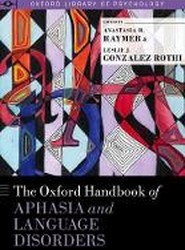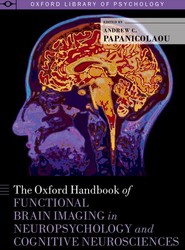(To see other currencies, click on price)
MORE ABOUT THIS BOOK
Main description:
Psychological assessment has always paralleled the growth of psychology and its specialties, and it is not an overstatement to say that measurement and assessment are the cornerstones of psychology, providing the tools and techniques for gathering information to inform our understanding of human behavior. However, the continued growth and new developments in the assessment literature requires an ongoing examination of the principles and practices of central
importance to psychological assessment.
The Oxford Handbook of Child Psychological Assessment covers all areas of child and adolescent assessment. Leaders in the field summarize and synthesize state-of-the-science assessment theories, techniques, and applications. Placing an emphasis on clinical and psychoeducational assessment issues, chapters explore issues related to the foundations, models, special topics, and practice of psychological assessment. Appropriate as a desk reference or a cover-to-cover read, this
comprehensive volume surveys fundamental principles of child assessment, including ability, achievement, behavior, and personality; covers the role of theory and measurement in psychological assessment; and presents new methods and data.
Contents:
Preface ; Donald H. Saklofske, Cecil R. Reynolds, and Vicki L. Schwean ; Part One: Foundations of Psychological Assessment ; 1. The Role of Theory in Psychological Assessment ; Darielle Greenberg, Elizabeth O. Lichtenberger, and Alan S. Kaufman ; 2. Testing: The Measurement and Assessment Link ; Scott L. Decker ; 3. Measurement and Statistical Issues in Child Assessment Research ; Matthew R. Reynolds and Timothy Z. Keith ; 4. Psychometric Versus Actuarial Interpretation of Intelligence and Related Aptitude Batteries ; Gary L. Canivez ; 5. The Status of Projective Assessment in Psychological Science and in Practice ; Hedwig Teglasi ; 6. Large-Scale Group Score Assessments: Past, Present, and Future ; Bobby Naemi, Eugene Gonzalez, Jonas Bertling, Anthony Betancourt, Jeremy Burrus, Patrick C. Kyllonen, Jennifer Minsky, Petra Lietz, Eckhard Klieme, Svenja Vieluf, Jihyun Lee, and Richard D. Roberts ; 7. Testing, Assessment, and Cultural Variation: Challenges in Evaluating Knowledge Claims ; Craig L. Frisby ; 8. Methods for Translating and Adapting Tests to Increase Cross-Language Validity ; Ronald K. Hambleton and Minji Kang Lee ; 9. Diagnosis, Classification, and Screening Systems ; R. W. Kamphaus, Erin Dowdy, Sangwon Kim, and Jenna Chin ; 10. The ICF-CY: A Universal Taxonomy for Psychological Assessment ; Rune J. Simeonsson and Andrea Lee ; 11. Responsible Use of Psychological Tests: Ethical and Professional Practice Concerns ; Jonathan W. Gould, David A. Martindale, and James R. Flens ; Part Two: Models of Assessment ; 12. Cognitive Assessment: Progress in Psychometric Theories of Intelligence, the Structure of Cognitive Ability Tests, and Interpretive Approaches to Cognitive Test Performance ; Dawn P. Flanagan, Vincent C. Alfonso, Samuel O. Ortiz, and Agnieszka M. Dynda ; 13. Principles of Assessment of Aptitude and Achievement ; W.J. Schneider ; 14. Principles of Neuropsychological Assessment in Children and Adolescents ; Cynthia A. Riccio and Cecil R. Reynolds ; 15. Models for the Personality Assessment of Children and Adolescents ; Donald H. Saklofske, Diana K. Joyce, Michael L. Sulkowski, and Emma A. Climie ; 16. Principles of Behavioral Assessment ; Tanya L. Eckert and Benjamin J. Lovett ; 17. Therapeutic Assessment with Adolescents and Their Parents: A Comprehensive Model ; Deborah J. Tharinger, Lauren B. Gentry, and Stephen E. Finn ; Part Three: The Practice of Psychological Assessment ; 18. History-taking, Clinical Interviewing, and the Mental Status Examination in Child Assessment ; Mauricio A. Garcia-Barrera and William R. Moore ; 19. Psychological Testing by Models of Cognitive Ability ; A. Lynne Beal, John O. Willis, and Ron Dumont ; 20. Methods of Neuropsychological Assessment ; Susan Homack ; 21. Memory Assessment ; Wayne Adams ; 22. Formal Methods in Assessing Child and Adolescent Personality and Affect ; Patricia A. Lowe, Erik L. Fister, Susan M. Unruh, Jennifer M. Raad, Justin P. Allen, Tiffany L. Arrington, Skylar A. Bellinger, Liesl J. Edwards, Belinda N. Kathurima, Jeaveen M. Neaderhiser, Christopher R. Niileksela, Jessica Oeth Schuttler, Matthew J. Grumbein, and Stephen W. Loke ; 23. Methods of Assessing Academic Achievement ; Michelle A. Drefs, Tanya Beran, and Meghann Fior ; 24. Methods of Assessing Learning and Study Strategies ; Kathy C. Stroud ; 25. Models and Methods of Assessing Creativity ; James C. Kaufman, Christina M. Russell, and Jonathan A. Plucker ; 26. Methods of Assessing Behavior I: Observations and Rating Scales ; Erin Dowdy, Jennifer Twyford, and Jill D. Sharkey ; 27. Models and Methods of Assessing Adaptive Behavior ; Jason Hangauer, Jonathan Worcester, and Kathleen Hague Armstrong ; Part Four: Special and Emergent Topics in Child and Adolescent Assessment ; 28. The Authentic Alternative for Assessment in Early Childhood Intervention ; Marisa Macy and Stephen J. Bagnato ; 29. Assessing Mild Intellectual Disability: Issues and Best Practices ; Daniel J. Reschly ; 30. Toward a Synthesis of Cognitive-Psychological, Medical/Neurobiological, and Educational Models for the Diagnosis and Management of Dyslexia ; Nancy Mather, Bennett A. Shaywitz, and Sally E. Shaywitz ; 31. Testing Accommodations for Children with Disabilities ; Brian C. McKevitt, Stephen N. Elliott, and Ryan J. Kettler ; 32. Special Issues in Forensic Assessment of Children and Adolescents ; Kathryn Kuehnle, Steven N. Sparta, H.D. Kirkpatrick, and Monica Epstein ; 33. Assessing Noncognitive Constructs in Education: A Review of Traditional and Innovative Approaches ; Anastasiya A. Lipnevich, Carolyn MacCann, and Richard D. Roberts ; 34. Assessment of Subjective Well-being in Children and Adolescents ; E. Scott Huebner and Kimberly J. Hills ; 35. Assessment of Parenting Style, Parenting Relationships, and Other Parent Variables in Child Assessment ; Laura G. McKee, Deborah J. Jones, Rex Forehand, and Jessica Cuellar ; 36. Linking Children and Adolescent Assessment to Effective Instruction: An Evidence-based Perspective from the Experimental Literature ; H. Lee Swanson
PRODUCT DETAILS
Publisher: Oxford University Press (Oxford University Press Inc)
Publication date: April, 2013
Pages: 880
Dimensions: 178.00 x 256.00 x 45.00
Weight: 1674g
Availability: Available
Subcategories: Psychiatry, Psychology
From the same series
Thomas H. Ollendick
Robert F. Krueger
Michaela A. Swales
Pascal Belin
Shaun Gallagher
Kieran C.R. Fox
W. Stewart Agras
Shane J. Lopez
Leslie J. Gonzalez Rothi
Maryanne L. Fisher
Jane Edwards
Seth J. Schwartz
Stephen G. Harkins
Andrew C. Papanicolaou
Robert J. DeRubeis
Thomas A. Widiger
Michael Waldmann
Matthew K. Nock
Stephen M. Kosslyn
Stephen M. Kosslyn
Phillip M. Kleespies
Kenneth J. Sher
Kieran T. Sullivan
Kenneth J. Sher
Kenneth J. Sher
Amy Wenzel
Thomas J. Dishion
Jane Edwards
Marc Marschark
Arthur M. Nezu
Robert Turner
Jeffrey Jensen Arnett
Stephen P. Hinshaw
Turhan Canli
Ken Laidlaw
Ying-yi Hong
Michael W. O'Hara
Nichola Rumsey
Matthew K. Nock
David H. Barlow
Susan David
Gail Steketee
Howard S. Friedman
Julie Simner
Lisa J. Miller
Thomas Widiger
Michael L. Wehmeyer
Simon Liversedge
Jonathan S. Comer
Jeffry A. Simpson
Marjorie Taylor
William Ming Liu
Judy Illes
Elizabeth Vera
Susan D. Clayton
Thomas Widiger
Lisa J. Miller
Paul Kennedy
Suzanne Segerstrom
Edmund O. Acevedo
Valerie Maholmes, Ph.D., CAS
J. Gayle Beck
Richard M. Ryan
Charles M. Morin
Janice H. Laurence
Michael Nash
Elizabeth M. Altmaier
Shane J. Lopez
Jacob A. Burack
Jon E Grant
Robert K. Conyne
Simon Liversedge
Judy Illes
Peter E. Nathan
David H. Barlow
Susan Folkman
W. Stewart Agras
Christopher Plack
Paul Fuchs
James N Butcher
Martin M. Antony
Ulf Ziemann































































































